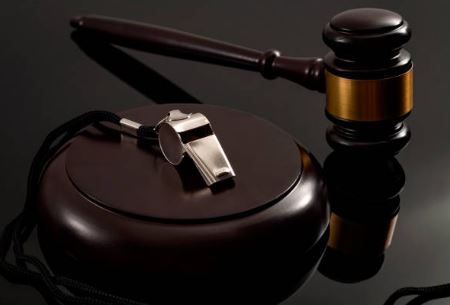By: Kelly Caplan in News Stories October 26, 2022
Argument has been ordered in case involving what constitutes a “report” for purposes of the Whistleblower Protection Act, or WPA.
In McNeill-Marks v. MidMichigan Medical Center-Gratiot (MiLW 08-105229, 5 pages), Tammy McNeill-Marks placed a call to her attorney to convey that an individual violated a personal protection order but requested that no action be taken.
This was not a “report,” according to a Court of Appeals panel.
“[P]laintiff did not make a ‘report’ as envisioned by the WPA,” the judges explained. “Her communication lacked the purposeful intent necessary for qualification as a ‘report’ for WPA purposes. She informed her personal attorney but intended no action be taken.”
Now, the justices have directed the parties to address whether the communication from McNeill-Marks to her attorney about the individual’s presence at the hospital amounted to a “report,” as that word is used in Section 2 of the WPA.
At a minimum, the parties shall address whether: (1) the WPA requires that the plaintiff’s communication be to an individual with the authority to address the alleged violation of law; (2) the WPA requires that a plaintiff employee specifically intend to make a charge of a violation or suspected violation of law against another; and (3) privileged communications between a client and his or her attorney can constitute a report under the WPA.
Fired after chance encounter
Tammy McNeill-Marks emerged from an operating room at MidMichigan Medical Center-Gratiot, or MMCG, and greeted people in the hallway.
McNeill-Marks had multiple PPOs against Marcia Fields, who happened to be a hospital patient being transported in a wheelchair in the vicinity.
Fields responded, “Hello, Tammy,” in a manner that caused McNeill-Marks emotional distress; she feared that Fields discovered where she worked in the hospital, making her vulnerable and possibly her fellow employees unsafe.
McNeill-Marks called her supervisor — who knew of the PPO against Fields— and informed her of the incident.
She also called her personal attorney. During the conversation, McNeill-Marks instructed her attorney not to serve a newly entered PPO on Fields.
Unknown to McNeill-Marks and contrary to what she told her attorney, a process server later served Fields the PPO in her hospital room. Fields complained to MMCG, claiming McNeill-Marks violated the Health Insurance Portability and Accountability Act, or HIPAA.
After an investigation, MMCG ultimately terminated McNeill-Marks for violating both HIPAA and MMCG’s privacy policies based on the telephone conversation with her attorney.
McNeill-Marks filed a lawsuit accusing MMCG of violating the WPA.
The Gratiot County Circuit Court granted summary disposition in favor of MMCG. The first time the case appeared before the Court of Appeals, the panel reversed in part and remanded.
The trial court on remand again granted summary disposition for the hospital on the ground that McNeill-Marks’s communication with her attorney did not constitute a “report” under the WPA.
For the second trip to the appeals court, a majority reversed. MMCG sought leave to appeal to the Michigan Supreme Court, which reversed and remanded to the appellate court for consideration of whether McNeill-Marks’s communication satisfied the reporting requirement of the WPA.
The meaning of ‘report’
Prior case law — Rivera v. SVRC Industries, Inc. and Henry v. City of Detroit — discussed the question of whether a plaintiff’s communication with her attorney satisfied the WPA.
Whether a plaintiff made a “report” for WPA purposes by communicating with an attorney requires analysis of the nature of the communications, the appeals court said.
“The Rivera court clarified that a person making a claim under the WPA must establish she initiated making a ‘report’ which must involve ‘the making of a charge against’ or the ‘making known’ a violation of suspected violation of law,” the panel wrote. “Further, an attorney who merely fits the broad definition of a ‘public body,’ by virtue of participation in the profession, does not suffice for making a ‘report’ to a ‘public body’ for WPA purposes. When a person claims whistleblower status based on an allegation that a communication with an attorney constituted a ‘report,’ Rivera instructs that trial courts must engage in a deeper analysis of the particular facts and circumstances of the communication.”
The court acknowledged McNeill-Marks made Fields’s conduct known to her attorney, “but the record establishes that at the time of that communication she did not do so for purposes of making a charge of illegality against Fields ‘to remedy the situation or harm done by the violation[.]’”
Applying the principles articulated in Henry and Rivera, McNeill-Marks did not make a report as envisioned by the WPA, the panel said.
To Read The Original Article Go To:

